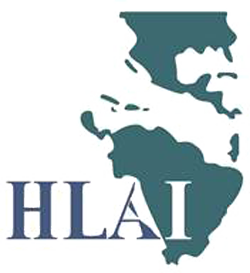DuPage County Probate Attorney

Lawyers Representing Executors, Family, and Heirs During the Probate Process in Wheaton and Glen Ellyn
During the estate planning process, a person will make decisions about how their assets should be passed to their beneficiaries after their death. After a person dies, there are a variety of legal issues that will need to be addressed, including making sure the terms of their will are carried out correctly. During the probate process, the individual named as the executor of the deceased person's estate must meet a variety of requirements, and they can make sure this process proceeds smoothly by working with an experienced attorney.
The lawyers of NN Legal Group provide dedicated legal help with estate planning and probate matters. We can help minimize complications during the probate process by working with families to create clear and concise wills and trusts, and we can provide representation to executors to ensure that they manage a person's final affairs efficiently and effectively. With over 12 years of experience in multiple legal areas, Attorney Nicolas Nelson can provide the advice and guidance to help you address and resolve probate matters correctly.
Understanding the Probate Process
After a person dies, the executor of their estate will file their last will and testament in the probate court of the county where the decedent resided. They will then take an inventory of the decedent's assets, pay necessary expenses (such as the costs related to the decedent's funeral and burial), and oversee the process of distributing these assets to the beneficiaries according to the terms of the will. They will also file tax returns on behalf of the estate and pay any federal or state income taxes or estate taxes that may apply, and they will notify the decedent's creditors, who will have six months to make any claims against the estate.
In Illinois, probate will usually only be necessary if the total value of a person's estate is higher than $100,000 or includes real estate property. Certain types of property are known as "non-probate assets" that can be passed to beneficiaries without going through the probate process. These include:
- Joint titled property, such as a home that is co-owned by the decedent and their spouse - In these cases, the co-owner will take full possession of the property.
- Accounts or assets that are designated as "transfer on death" or "payable on death" - These assets will be transferred to the ownership of the named beneficiary or beneficiaries.
- Assets held in a trust - Since these assets are owned and controlled by the trust rather than the decedent, they will be directly transferred to beneficiaries according to the terms of the trust.
During the probate process, the decedent's beneficiaries or other interested parties have the opportunity to contest certain terms of a will or the will as a whole. These types of disputes will usually be based on claims that a will is not legally valid. To prove that a will is invalid, an interested person will typically need to show that the decedent lacked "testamentary capacity," meaning that they did not understand the terms of the will when they signed it, or they may claim that a beneficiary exerted "undue influence" on the decedent and coerced them into signing a will that went against their wishes. A will may also be invalidated if it can be shown that it was not executed correctly or if fraud occurred, such as forging the decedent's signature or altering the will after it was signed.
Contact a Carol Stream Probate Lawyer
At NN Legal Group, we can provide executors with representation as they carry out their duties, or we can help address any issues related to contested wills or estates. We will work with you to make sure your loved one's wishes are carried out correctly while helping you avoid legal setbacks or unnecessary expenses whenever possible. Contact us and schedule a complimentary consultation by calling 630-474-0925 today. We assist with probate and estate planning in DuPage County, including Wheaton, Glendale Heights, Bloomingdale, Lombard, Glen Ellyn, Carol Stream, Addison, and Villa Park. Hablamos Español.

















